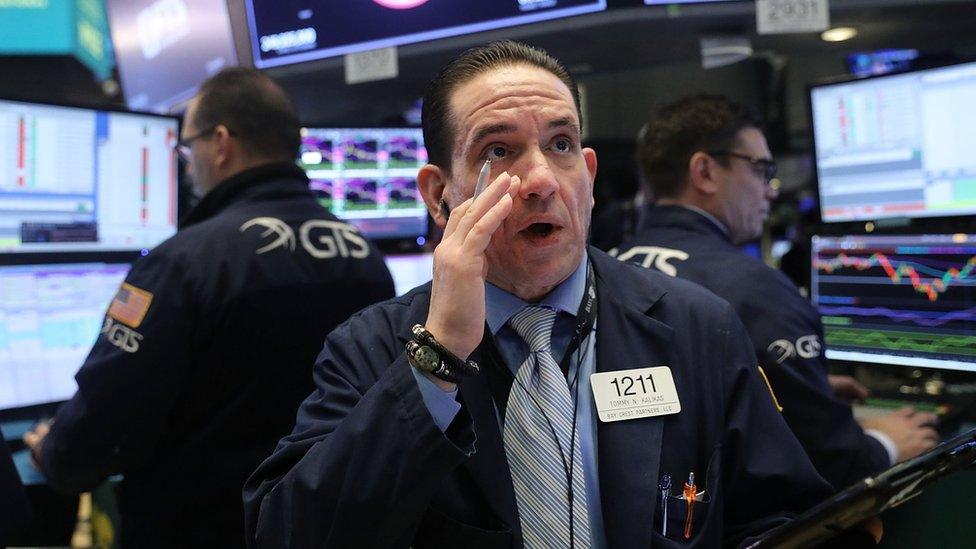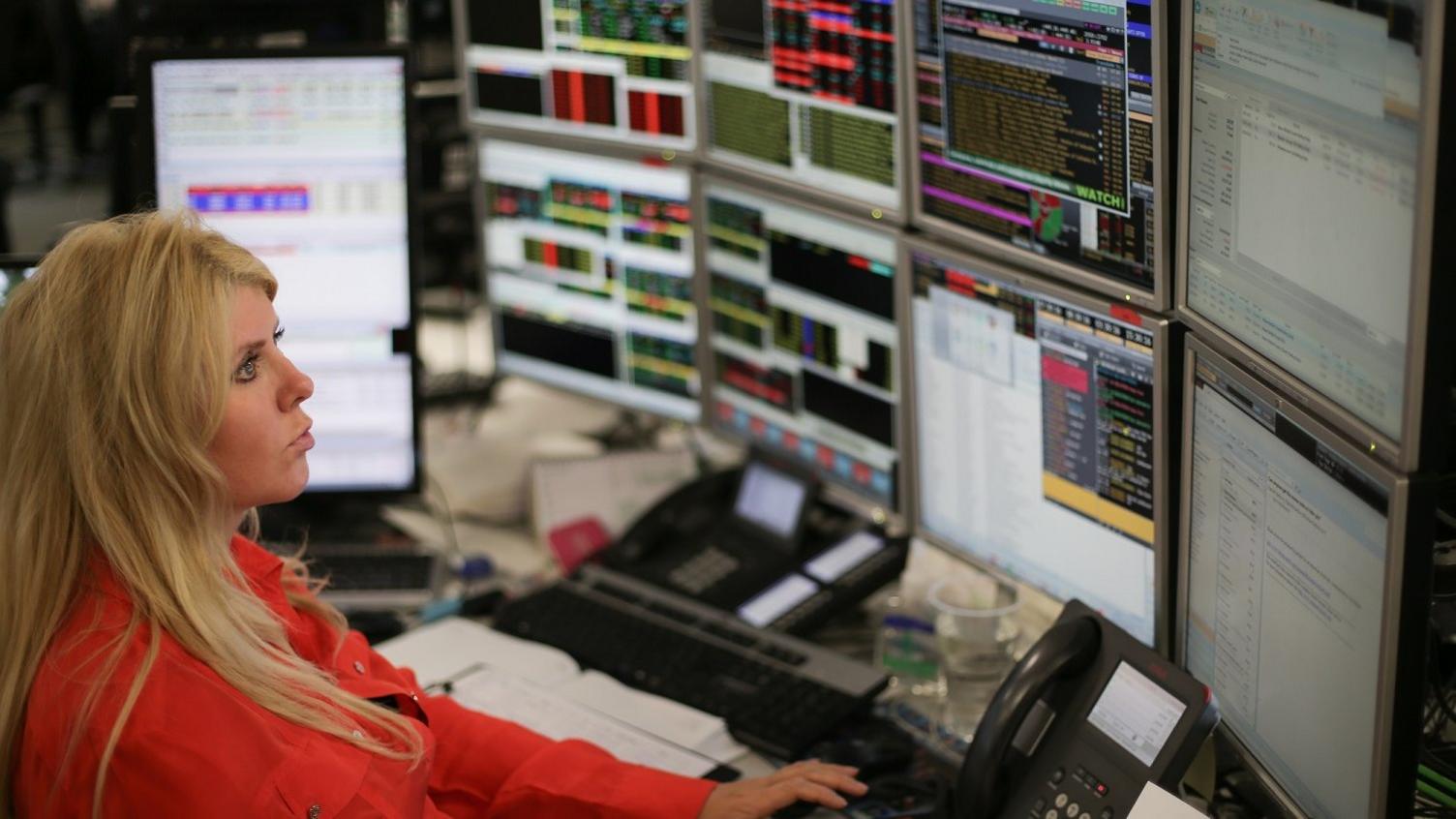Stock market fall: How will it affect you?
- Published
Wall Street's worst day since the crisis – explained in 90 seconds.
As European stock markets follow the turbulence in Asia and US trading, the BBC has asked for your questions about what is happening.
Many of the questions the BBC received focused on the possible ramifications for ordinary people.
Others wanted to know if it was likely the instability could bring about a crash.
BBC Business journalist Brian Milligan answers a selection of your questions below.
How is this going to affect normal people?
Even if you don't own shares or bonds directly, there is a good chance you own them as part of your pension. Twelve million workers in the UK are now members of defined contribution (dc) schemes.
This means the value of their retirement income is directly dependent on the value of the shares their pension fund owns.
But as long as you are not retiring in the very near future, this should not really affect you. In fact the shares your pension fund will now be buying will be cheaper, and will have a better chance of growing in value.
How likely is it that this may lead to a crash?
Ultimately, share prices depend on two things: the profits made by companies, and the sentiment of investors. At the moment, many companies are making good profits, especially in the US, where tax cuts will boost earnings further.
As long as these economic fundamentals are good, it is unlikely there will be a full-blown "crash" - unless investors have a real reason to worry. Their concern at the moment is about rising inflation and rising interest rates, which are actually signs the global economy is growing well.

Investors are concerned by rising inflation and interest rates
Does the market usually recover quickly after a sharp one-day decline like this, or does it carry on falling?
Ask your crystal ball!
The only advice on this from the experts is that markets recover over the long term. The definition of "long term" is rather more hazy.
"Markets are capricious beasts in the short term and, looking forward, stock prices could move in either direction without defying the laws of statistics," said Laith Khalaf, a senior analyst at Hargreaves Lansdown.
"However, in the long term, markets are more reliable in generating growth, and so anyone saving for retirement should still consider the stock market as a friend not a foe."
Is the tumbling stock market likely to cause an interest rate hike?
It's really the other way round. Investors are worried the US Federal Reserve - America's central bank - may raise rates four times this year, rather than the three previously expected. The Bank of England has also signalled that it expects to raise rates twice this year, maybe as soon as May. Higher borrowing costs mean lower profits for companies, and less spending by consumers. Which is why share prices have fallen.
It is the danger of inflation which causes central banks to raise rates. However, the Bank of England's Monetary Policy Committee (MPC) will take market falls into account when deciding whether to increase rates, particularly if they think consumers are likely to cut their spending as a result.
Why is the Bank of England holding interest rates so low and ignoring inflation?
The Bank of England target for CPI inflation is 2%. The latest figures show CPI running at 3% in the year to December.
While the Monetary Policy Committee's main job is to keep inflation in check, it also takes into account the health of - and risks to - the economy as a whole. While it did put up rates by 0.25% in November - to 0.5% - that was the first rise in 10 years.
However, the Bank has now hinted that it may not tolerate 3% inflation for much longer.

The Bank of England raised interest rates for the first time in more than a decade in November 2017
You may also like:
A sell-off was expected after the growth of the stock market. When is the sell-off worse than average growth?
Stock markets move constantly, so measuring growth very much depends on the dates you chose. But it is interesting to ask whether the average investor has gained or lost money over the last year, given the correction in prices.
At the time of writing, the FTSE 100 is pretty much where it was a year ago. In other words at the headline level the average investor has neither lost nor gained money over the last year. However, when you take dividends into account, investors may still have made reasonable returns. The average yield on the FTSE 100 is currently 3.8% - far higher than the return on cash.
Should I invest in a stocks and shares ISA now?
Journalists are not qualified to give financial advice. However, while no one knows what the stock market will do in the future, we are getting close to the end-of-year deadline for ISAs. If you are considering investing soon, it may be worth using up your ISA allowance for 2017/18.
If you buy a stocks and shares ISA, you can leave it in cash, until you decide where you want to invest.
You are allowed to contribute up to £20,000, for which you will pay no tax on the income or capital gain. Younger people who want to buy a home may want to consider the Lifetime ISA, to which the government will contribute an extra 25%.
Produced by BBC's UGC and Social News team
- Published7 February 2018
